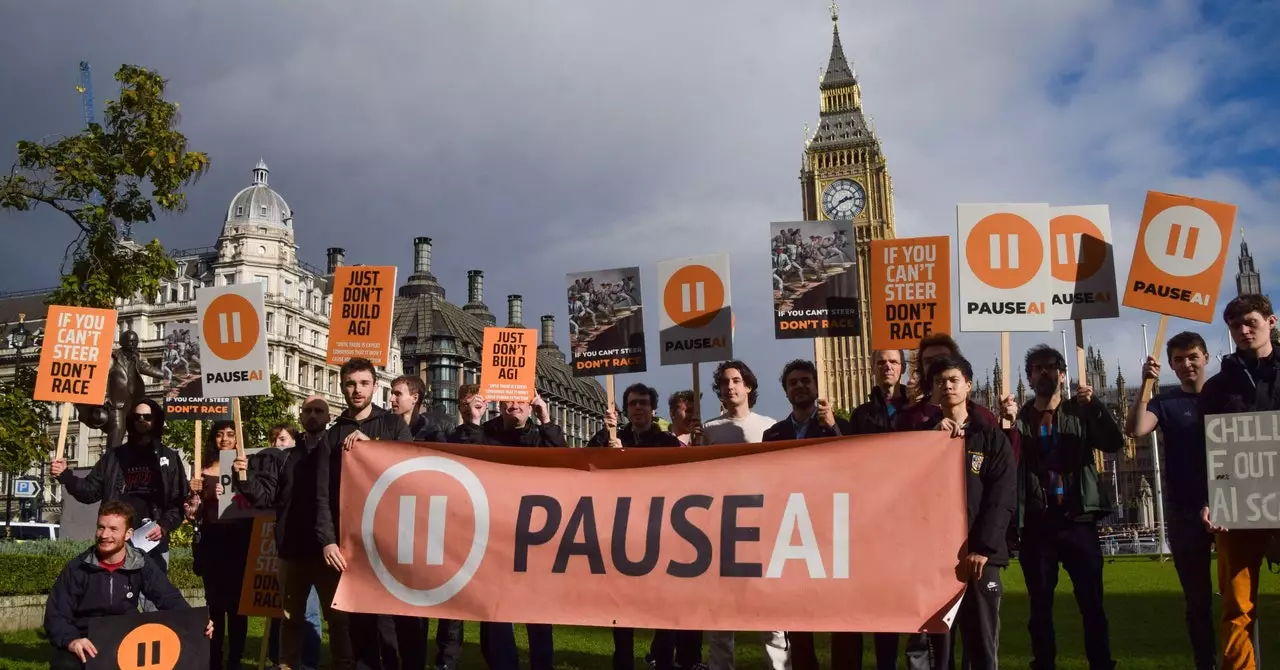As the world becomes increasingly reliant on artificial intelligence (AI) technology, there is a growing group of individuals who are concerned about the potential risks associated with its development. Inspired by the ideas put forth in Nick Bostrom’s book, “Superintelligence,” many activists have taken on the task of raising awareness about the dangers that advanced AI systems could pose to humanity. The launch of OpenAI’s Chat-GPT 3 model in 2020 served as a wake-up call for individuals like Joseph Miller, who became worried about the rapid advancements in AI technology and the lack of ethical guidelines surrounding its use.
Founding of Pause AI
Joseph Miller, along with other like-minded individuals, joined forces to create PauseAI, a movement dedicated to advocating for the responsible development of AI technologies. While rooted in the effective altruism movement, PauseAI seeks to expand its reach beyond philosophical circles and engage a wider audience in discussions about the ethical implications of AI. Director of Pause AI US, Holly Elmore, emphasizes the importance of including artists, writers, and copyright owners in the dialogue, as they stand to be significantly impacted by AI systems that can replicate creative works without consent.
The central tenet of the Pause AI movement is the call for a temporary halt in the advancement of AI technologies, allowing for a thorough examination of the potential risks and ethical considerations associated with their deployment. By pressing the pause button on AI development, advocates believe that it provides an opportunity to address a wide range of concerns, from the impact on creative industries to the broader implications for society as a whole.
Protesters associated with PauseAI draw inspiration from past movements that have successfully influenced the trajectory of new technologies. Gideon Futerman, a participant in the London protests, highlights the role that popular protests played in shaping public attitudes towards genetically modified organisms and nuclear power. While acknowledging that these movements may not have always had the correct solutions, Futerman remains optimistic about the potential for protest movements to sway public opinion and hold technology developers accountable.
Despite their concerns about the risks posed by AI, leaders of the Pause AI movement emphasize the importance of adopting moderate and responsible tactics in their activism. While the idea of more disruptive actions, such as sit-ins or encampments near AI offices, has been raised, the group remains committed to peaceful and lawful forms of protest. Holly Elmore stresses the need for trustworthiness and moderation in their approach, refraining from endorsing any form of violence or illegal activities in their advocacy efforts.
The founder of Pause AI, Meindertsma, envisions a future where the movement can overcome the “AI doomer” label and be seen as a force for positive change. By reframing the narrative around AI development and focusing on the importance of ethical considerations, advocates hope to inspire a more nuanced and constructive dialogue about the role of AI in society. Instead of giving up on humanity, Meindertsma sees Pause AI as a beacon of hope for a future where AI technologies are developed responsibly and in the best interests of humanity as a whole.
The Pause AI movement represents a growing awareness of the ethical challenges posed by AI technologies and a call to action for developers, policymakers, and the public to prioritize responsible AI development. By advocating for a pause in AI advancement and fostering dialogue around the potential risks and benefits of AI, the movement seeks to shape a future where technology serves the greater good while upholding fundamental ethical principles.


Leave a Reply